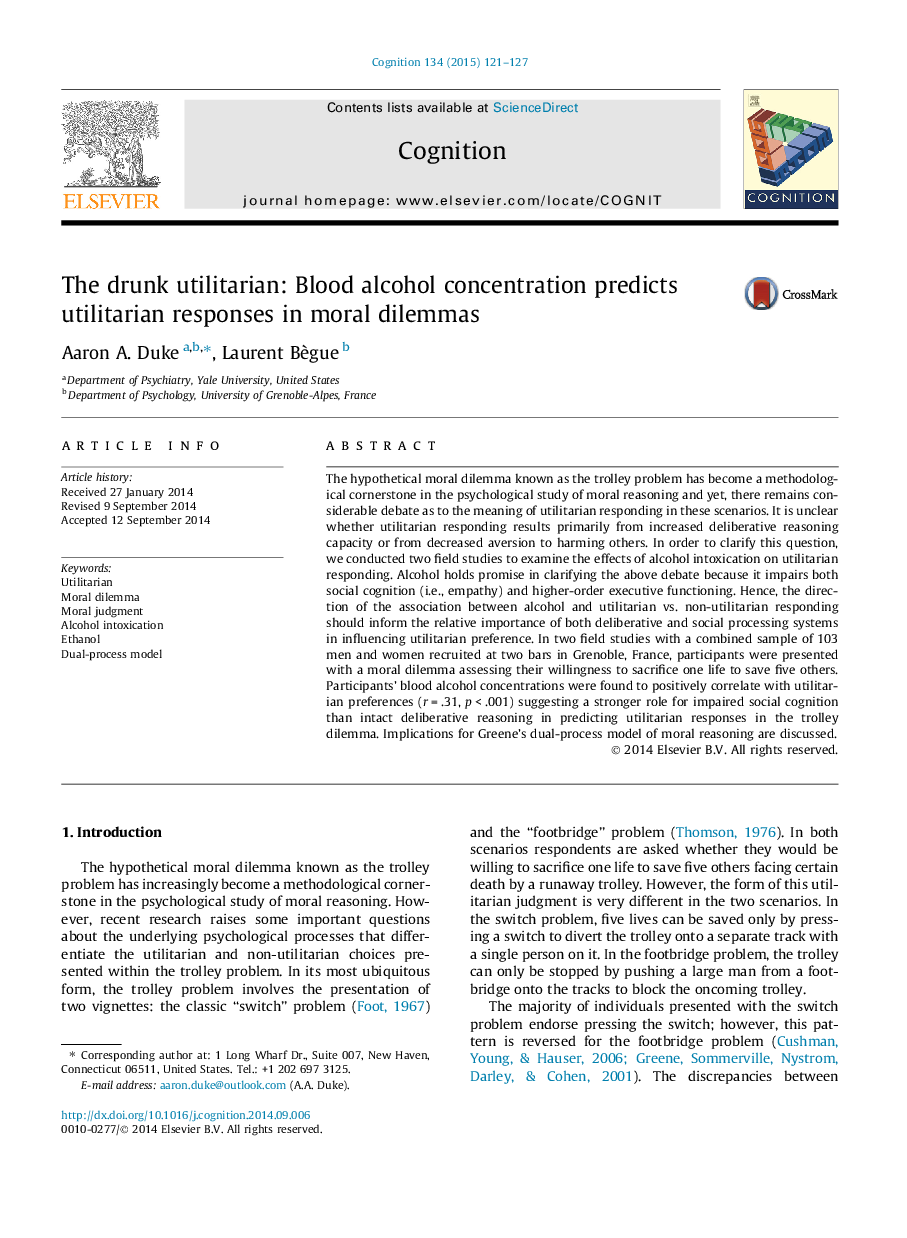| کد مقاله | کد نشریه | سال انتشار | مقاله انگلیسی | نسخه تمام متن |
|---|---|---|---|---|
| 7287565 | 1474133 | 2015 | 7 صفحه PDF | دانلود رایگان |
عنوان انگلیسی مقاله ISI
The drunk utilitarian: Blood alcohol concentration predicts utilitarian responses in moral dilemmas
ترجمه فارسی عنوان
مصرف کننده معتاد: غلظت الکل خون، پیش بینی پاسخ های سودمند در معضلات اخلاقی را پیش بینی می کند
دانلود مقاله + سفارش ترجمه
دانلود مقاله ISI انگلیسی
رایگان برای ایرانیان
کلمات کلیدی
سودآور، معضل اخلاقی، قضاوت اخلاقی، مسمومیت با الکل اتانول، مدل فرآیند دوگانه،
موضوعات مرتبط
علوم زیستی و بیوفناوری
علم عصب شناسی
علوم اعصاب شناختی
چکیده انگلیسی
The hypothetical moral dilemma known as the trolley problem has become a methodological cornerstone in the psychological study of moral reasoning and yet, there remains considerable debate as to the meaning of utilitarian responding in these scenarios. It is unclear whether utilitarian responding results primarily from increased deliberative reasoning capacity or from decreased aversion to harming others. In order to clarify this question, we conducted two field studies to examine the effects of alcohol intoxication on utilitarian responding. Alcohol holds promise in clarifying the above debate because it impairs both social cognition (i.e., empathy) and higher-order executive functioning. Hence, the direction of the association between alcohol and utilitarian vs. non-utilitarian responding should inform the relative importance of both deliberative and social processing systems in influencing utilitarian preference. In two field studies with a combined sample of 103 men and women recruited at two bars in Grenoble, France, participants were presented with a moral dilemma assessing their willingness to sacrifice one life to save five others. Participants' blood alcohol concentrations were found to positively correlate with utilitarian preferences (r = .31, p < .001) suggesting a stronger role for impaired social cognition than intact deliberative reasoning in predicting utilitarian responses in the trolley dilemma. Implications for Greene's dual-process model of moral reasoning are discussed.
ناشر
Database: Elsevier - ScienceDirect (ساینس دایرکت)
Journal: Cognition - Volume 134, January 2015, Pages 121-127
Journal: Cognition - Volume 134, January 2015, Pages 121-127
نویسندگان
Aaron A. Duke, Laurent Bègue,
